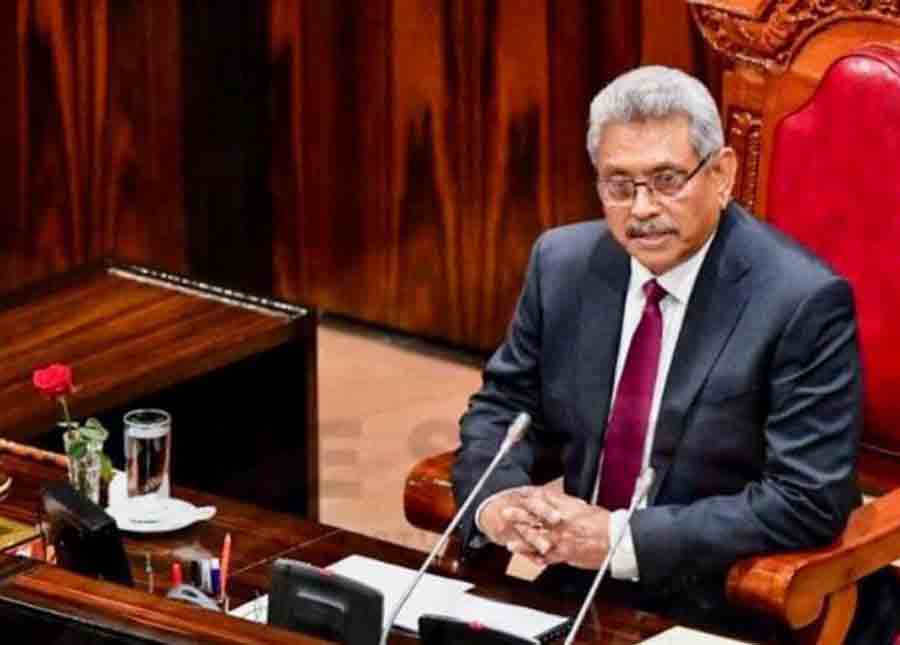Sri Lanka's main Opposition party SJB on Friday announced that it will move a no-confidence motion against the government of President Gotabaya Rajapaksa if it fails to take steps to address the concerns of the public facing hardships due to the worst economic crisis.
Opposition leader Sajith Premadasa also called for the Executive Presidency to be abolished, saying power should be divided between the Executive, Legislature and Judiciary.
The government must pay heed to the public demand for the Rajapaksas to quit, if not we will bring a no confidence motion," the leader of the Samagi Jana Balawegaya (SJB) told Parliament.
The SJB has begun to collect signatures from MPs for the no-confidence motion, according to media reports.
Rajapaksa earlier proposed the creation of a unity government, but the main Opposition party Samagi Jana Balawegaya (SJB) rejected the idea.
Premadasa said that he cannot agree to an interim Government with President Gotabaya Rajapaksa remaining as President. The SJB said that it is also prepared to impeach the President.
He also submitted a set of proposals to Parliament on behalf of the SJB to address the economic crisis in Sri Lanka.
The Opposition backs the public protests happening all over the island, demanding the resignation of the President and the entire Rajapaksa family.
Opposition JVP legislator Vijitha Herath said if Rajapaksa does not resign there needs to be a motion of impeachment for his removal as the President. If he is not responsive to the problems of the people let's be ready to impeach and remove him," he said.
Thousands of people from all walks of life have been demonstrating, demanding a solution to the crisis and calling for Rajapaksa to resign over economic mismanagement.
Rajapaksa has resisted the demands to step down, even after members of his own coalition joined the anti-government demonstrations this week, with governing party lawmakers calling for the appointment of an interim government to avoid possible violence.
Parliament has failed to reach a consensus in three days of debate on how to deal with the economic crisis.
The President and his older brother, Prime Minister Mahinda Rajapaksa, continue to hold power, despite their family being the focus of public ire. Five other family members are lawmakers, including Basil Rajapaksa, Irrigation Minister Chamal Rajapaksa and a nephew, Sports Minister Namal Rajapaksa.
The government speakers defend the ruling family, saying the President need not resign as protests were meant to achieve "extra constitutional aims".
Rajapaksa last month said his government was in talks with the International Monetary Fund and had turned to China and India for loans, and he appealed to people to limit their use of fuel and electricity.
The Sri Lankan government has appointed an advisory committee comprising eminent economic and fiscal experts to provide guidance on addressing the current debt crisis and engaging with the IMF and other lenders as the island nation struggles to combat the unprecedented shortage of foreign reserves.
Foreign Minister Peiris told the foreign diplomats in the country on Wednesday that the government is ready to provide solutions to the existing problems in accordance with the country's Constitution.
Briefing the Diplomatic corps on Wednesday at the Ministry of Foreign Affairs, Minister Peiris said that the Government of Sri Lanka was fully aware of the severe hardships of the people and its magnitude with the most pressing issues being power cuts, shortage of gas, fuel and essential medicines.
Meanwhile, public and semi-public sector employees on Friday launched an island-wide one-day strike to protest against the government. Many government institutions across the country have become inactive due to the token strike by the employees of state and semi state institutions.











